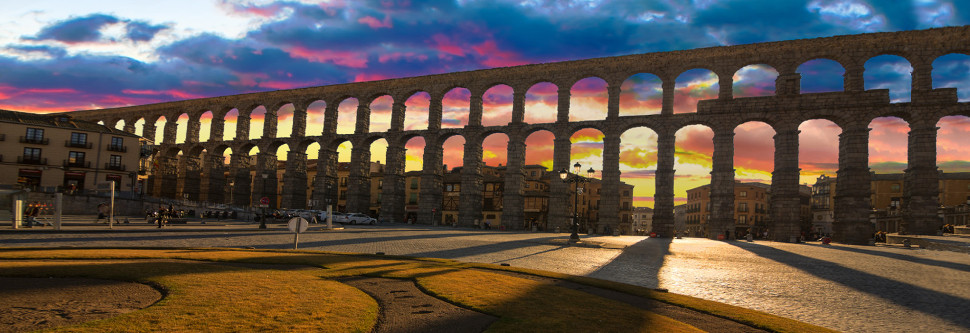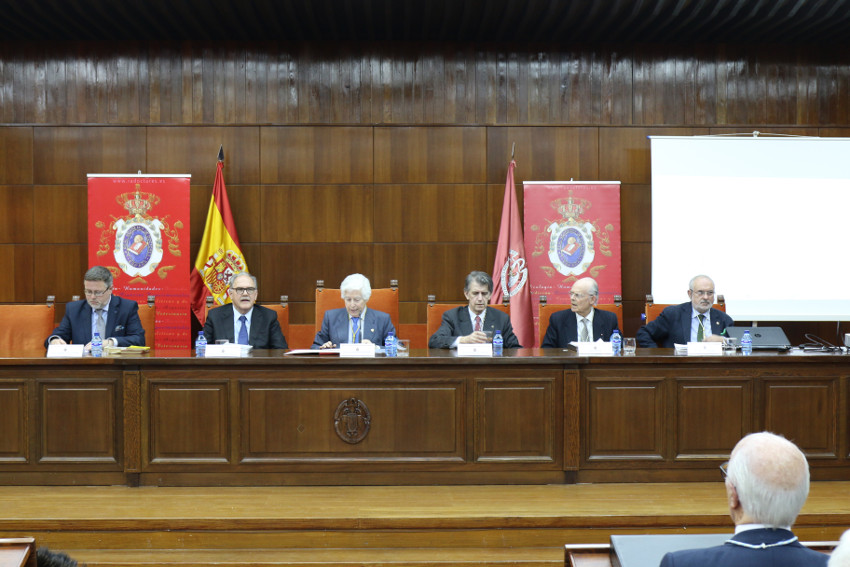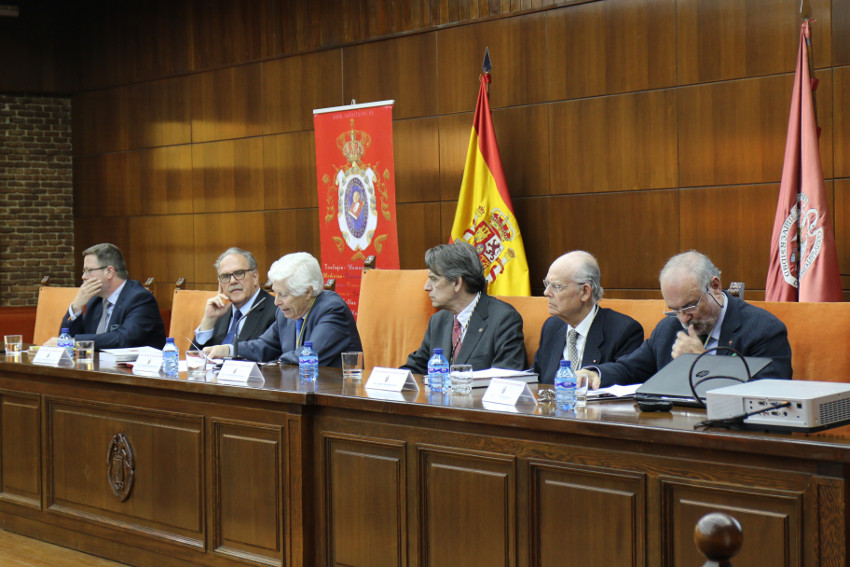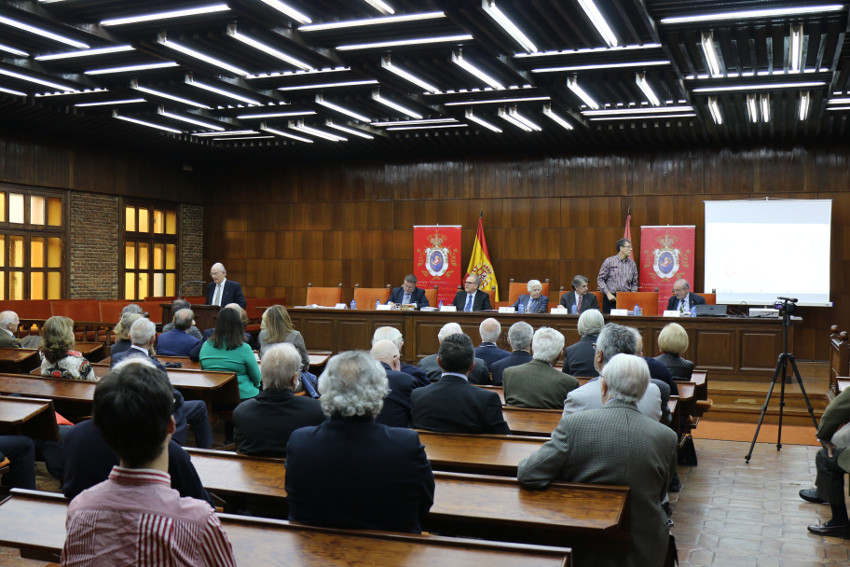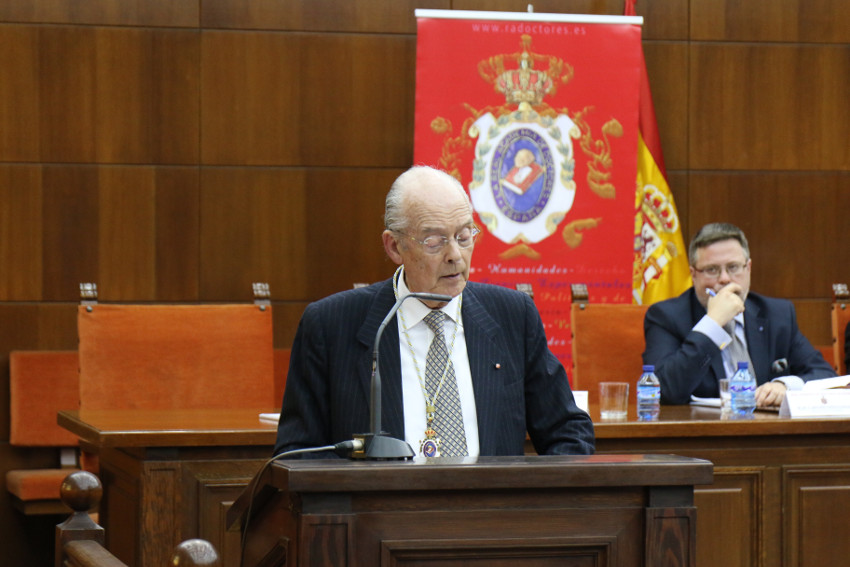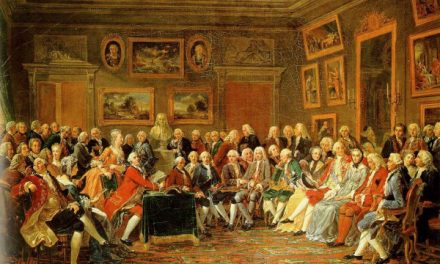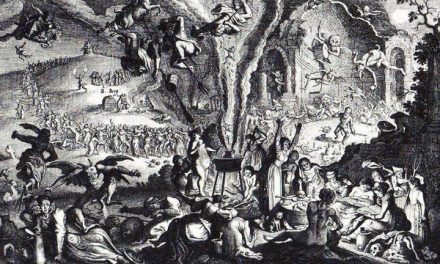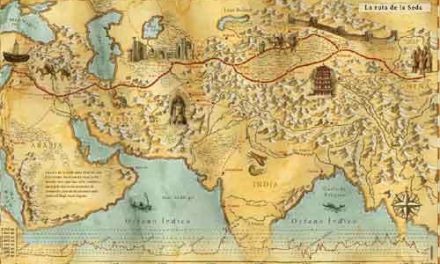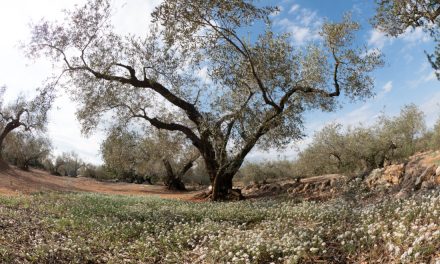The Royal Academy of Doctors of Spain and the Royal European Academy of Doctors reflect on the management and dissemination of goods of cultural and natural interest
 The Royal Academy of Doctors of Spain (RADE) and the Royal European Academy of Doctors-Barcelona 1914 (RAED) celebrated on Wednesday, March 20, the round table “Patrimonio mundial e inmaterial de España” (World and intangible heritage of Spain). The session was held in the Auditorium of the Marqués de Valdecilla Library in Madrid attended by Ignacio Buqueras, full academician of the Section of Humanities of the RADE, president of the Association for the Dissemination and Promotion of the World Heritage of Spain and full academician elected of the RAED; Emilio de Diego Martínez, full academician and president of the Section of Humanities of the RADE, and Santiago Castellà, full academician and member of the Governing Board of the RAED and general secretary of its foundation. Antonio Bascones, full academician of the Royal Academy of Doctors of Spain, presented the act and served as moderator of the debate, while Alfredo Rocafort, full academician and president of the Royal European Academy of Doctors, addressed some words of thanks to the RADE for its reception and its firm commitment to work in common between both academic institutions.
The Royal Academy of Doctors of Spain (RADE) and the Royal European Academy of Doctors-Barcelona 1914 (RAED) celebrated on Wednesday, March 20, the round table “Patrimonio mundial e inmaterial de España” (World and intangible heritage of Spain). The session was held in the Auditorium of the Marqués de Valdecilla Library in Madrid attended by Ignacio Buqueras, full academician of the Section of Humanities of the RADE, president of the Association for the Dissemination and Promotion of the World Heritage of Spain and full academician elected of the RAED; Emilio de Diego Martínez, full academician and president of the Section of Humanities of the RADE, and Santiago Castellà, full academician and member of the Governing Board of the RAED and general secretary of its foundation. Antonio Bascones, full academician of the Royal Academy of Doctors of Spain, presented the act and served as moderator of the debate, while Alfredo Rocafort, full academician and president of the Royal European Academy of Doctors, addressed some words of thanks to the RADE for its reception and its firm commitment to work in common between both academic institutions.
Bascones highlighted the value of Spanish heritage, both material and immaterial, and urged civil society and, logically, administrations to protect and disseminate it. “One of the things we should be most proud of is the heritage of Spain, we have wealth everywhere and in all places from north to south and from east to west, we are a country that has managed to move a language, values and culture to other countries and continents throughout history, opening trade routes and facilitating ties with many different cultures and ways of life. Our future is only feasible from the perspective of self-confidence and knowledge of our common history”, he said in his introduction to the session.
Buqueras, meanwhile, succinctly outlined the heritage and natural elements recognized and protected by UNESCO in Spain and its distribution by Autonomous Communities. He also explained the work of the Association for the Dissemination and Promotion of the World Heritage of Spain. “Despite having one of the most important international assets, unfortunately is not completely known or appreciated or valued by Spanish society, which is why in 2018 we decided to create the association”, he explained. The edition of the book “El patrimonio mundial e inmaterial de España” (The world and intangible heritage of Spain), which gave its name to the round table, is the culmination of more than five years of work.
Castellà addressed the question of the construction of a common imaginary of Spanishness. He began his reflection on cities, especially heritage cities, as a contribution of the West to the world: the city as a cosmopolitan space, complex, rational, dynamic, sum of efforts to generate surpluses to distribute and thereby generating a shared public space and the administration of common services. The speaker explained that the heritage cities allow us to ask ourselves and find answers about what we are, but above all about what we want to be: it is about building a collective imaginary of Spanishness, even of the Hispanic. And he explained how the idea of the third Spain, of Spain always impossible, expelled or submitted, had been the space from which to reflect on the deep meaning of what it is to be Spanish and what was the role of Spanishness in the construction of the imaginary of the West. De Diego’s intervention, on the other hand, focused on the example of Segovia and the exemplary management of its heritage.

